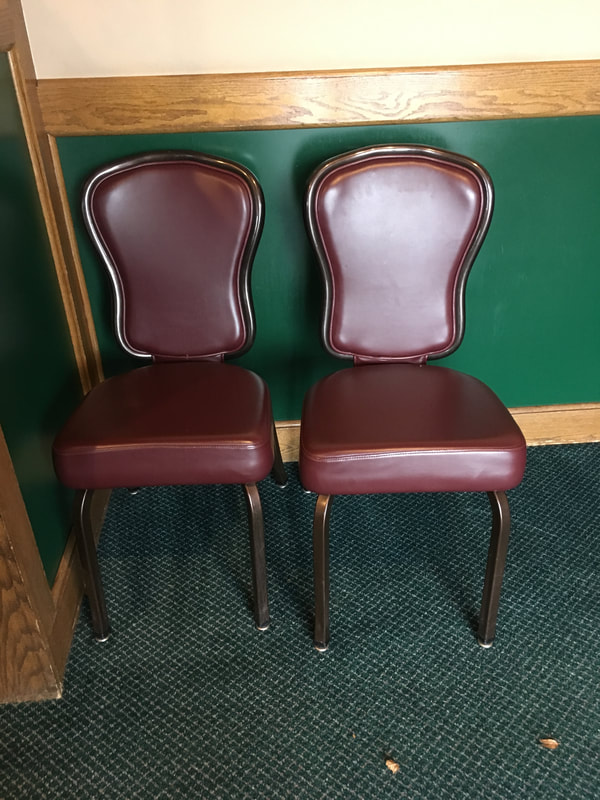Maya Angelou, The Art of Fiction No. 119, 1990 interviewed by George Plimpton on the stage of the YMHA on Manhattan's Upper East Side, in Women At Work Vol. II, Interviews from the Paris Review
|
Angelou: Years ago I read a man named Machado de Assis who wrote a book called Dom Casmurro. Machado de Assis is a South American writer—black father, Portuguese mother—writing in 1865, say. I thought the book was very nice. Then I went back and read the book and said, Hmm. I didn't realize all that was in that book. Then I read it again, and again, and I came to the conclusion that what Machado de Assis had done for me was almost a trick: he had beckoned me onto the beach to watch a sunset. And I had watched the sunset with pleasure. When I turned around to come back in I found that the tide had come in over my head. That's when I decided to write. I would write so that the reader says, That's so nice. Oh boy, that's pretty. Let me read that again. I think that's why Caged Bird is in its twenty-first printing in hardcover and its twenty-ninth in paper. All my books are still in print, in hardback as well as paper, because people go back and say, Let me read that. Did she really say that?
Maya Angelou, The Art of Fiction No. 119, 1990 interviewed by George Plimpton on the stage of the YMHA on Manhattan's Upper East Side, in Women At Work Vol. II, Interviews from the Paris Review Angelou: Of course, there are those critics—New York critics as a rule—who say, Well, Maya Angelou has a new book out and of course it's good but then she's a natural writer. Those are the ones I want to grab by the throat and wrestle to the floor because it takes me forever to get it to sing. I work at the language. On an evening like this, looking out at the auditorium, if I had to write this evening from my point of view, I'd see the rust-red, used, worn velvet seats and the lightness where people's backs have rubbed against the back of the seat so that it's a light orange, then the beautiful colors of the people's faces, the white, pink-white, beige-white, light beige and brown and tan—I would have to look at all that, at all those faces and the way they sit on top of their necks. When I would end up writing after four hours or five hours in my room, it might sound like, It was a rat that sat on a mat. That's that. Not a cat. But I would continue to play with it and pull at it and say, I love you. Come to me. I love you. It might take me two or three weeks just to describe what I'm seeing now.
Maya Angelou, The Art of Fiction No. 119, 1990 interviewed by George Plimpton on the stage of the YMHA on Manhattan's Upper East Side, in Women At Work Vol. II, Interviews from the Paris Review Photo taken in the Wilbury Theatre, Providence RI Interviewer: Is the space series going to continue?
Lessing: Yes. I haven't forgotten it. If you read the last one, The Sentimental Agents (1983)—which is really satire, not science fiction—you'll see that I've ended it so that I've pointed it all to the next volume. The book ends in the middle of a sentence. In the next book, I send this extremely naive agent off to... What's the name of my bad planet? Interviewer: Shammat? Lessing: Yes, to Shammat, in order to reform everything. It's going to be difficult to write about Shammat because I don't want to make it much like Earth! That's too easy! I have a plot, but it's the tone I need. You know what I mean? Doris Lessing, The Art of Fiction No. 102, 1988 interviewed by Thomas Frick, in Women At Work Vol. II, Interviews from the Paris Review Lessing: ...I do think that sometimes I hit a kind of wavelength—though I think a lot of writers do this—where I anticipate events. But I don't think it's very much, really. I think a writer's job is to provoke questions. I like to think that if someone's read a book of mine, they've had—I don't know what—the literary equivalent of a shower. Something that would start them thinking in a slightly different way perhaps. That's what I think writers are for. This is what our function is. We spend all our time thinking about how things work, why things happen, which means that we are more sensitive to what's going on.
Doris Lessing, The Art of Fiction No. 102, 1988 interviewed by Thomas Frick, in Women At Work Vol. II, Interviews from the Paris Review Interviewer: In your preface to Shikasta you wrote that people really didn't know how extraordinary a time this was in terms of the availability of all kinds of books. Do you feel that in fact we're going to be leaving the culture of the book? How precarious a situation do you see it?
Lessing: Well, don't forget, I remember World War II when there were very few books, very little paper available. For me to walk into a shop or look at a list and see anything that I want, or almost anything, is like a kind of miracle. In hard times, who knows if we're going to have that luxury or not? Doris Lessing, The Art of Fiction No. 102, 1988 interviewed by Thomas Frick, in Women At Work Vol. II, Interviews from the Paris Review |
Categories |






 RSS Feed
RSS Feed